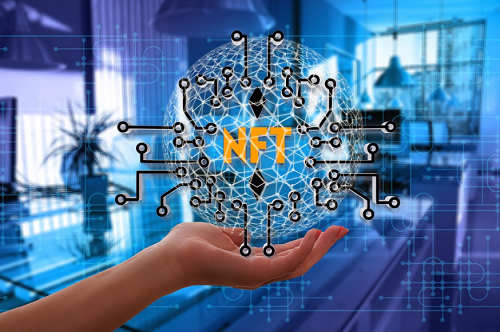


In the digital age, the concept of ownership is rapidly evolving, with Non-Fungible Tokens (NFTs) taking centre stage. NFTs have stirred significant interest and controversy, transforming how we perceive and trade digital assets. But what exactly are NFTs, and what purpose do they serve? Let’s dive into the fascinating world of NFTs, exploring their functionality, applications, benefits, and the challenges they face.
Non-Fungible Tokens, or NFTs, are unique digital assets verified using blockchain technology. Unlike cryptocurrencies such as Bitcoin or Ethereum, which are fungible and can be exchanged on a one-to-one basis, NFTs are one-of-a-kind. Each NFT contains distinct information, making it irreplaceable and unique.
A Brief History
NFTs emerged from the broader blockchain movement, gaining traction with the advent of CryptoKitties in 2017, where users could breed and trade virtual cats. This was just the beginning. The years 2020 and 2021 saw an explosion in NFT popularity, with digital art, music, and even virtual real estate being tokenized and sold for substantial sums.
At the heart of NFTs is blockchain technology, a decentralized ledger that records transactions across multiple computers. This technology ensures the authenticity and ownership of NFTs, providing a transparent and immutable record.
Smart contracts play a crucial role in the NFT ecosystem. These self-executing contracts, with the terms of the agreement directly written into code, govern the creation, transfer, and ownership of NFTs. They ensure that transactions are secure and automatically executed when conditions are met.
The core value of NFTs lies in their uniqueness and scarcity. Each NFT is distinct, with its own metadata and attributes that set it apart from others. This uniqueness is what drives their value, making them highly sought after by collectors and enthusiasts.
One of the most prominent uses of NFTs is in the digital art world. Artists can tokenize their work, selling it as an NFT while retaining proof of ownership and authenticity. This has opened new revenue streams for artists, enabling them to reach a global audience.
Musicians are also leveraging NFTs to monetize their work. By selling music as NFTs, artists can offer exclusive content, limited editions, and even concert tickets, creating a direct and intimate connection with their fans.
The gaming industry has embraced NFTs enthusiastically. Players can buy, sell, and trade in-game assets like skins, weapons, and virtual real estate, all represented as NFTs. This not only adds a layer of ownership but also allows for the creation of secondary markets.
Platforms like Decentraland and The Sandbox have introduced the concept of virtual real estate, where users can purchase, develop, and trade parcels of virtual land. These virtual properties, represented as NFTs, have fetched significant prices, showcasing the potential of digital real estate.
NFTs have also revitalized the world of collectibles. Digital trading cards, memorabilia, and other collectibles are now being tokenized, allowing collectors to own and trade rare items in the digital realm.
NFTs provide undeniable proof of ownership and authenticity in the digital world. This is particularly valuable in industries like art and collectibles, where verifying the originality of an item can be challenging.
Smart contracts allow creators to earn royalties on secondary sales of their NFTs. This means that artists, musicians, and other creators can continue to benefit financially whenever their work is resold.
NFTs have democratized access to global markets for creators. Without the need for intermediaries, artists and musicians can reach their audience directly, retaining a larger share of their earnings.
One of the major criticisms of NFTs is their environmental impact. The blockchain networks that support NFTs, particularly those using proof-of-work consensus mechanisms, consume significant amounts of energy. This has led to concerns about the carbon footprint associated with NFT transactions.
The NFT market has seen its fair share of speculation, with some assets selling for exorbitant prices. This has raised concerns about the sustainability of the market and the potential for an NFT bubble, where prices are driven more by hype than intrinsic value.
As with any emerging technology, NFTs face legal and regulatory challenges. Issues around intellectual property rights, copyright infringement, and regulatory compliance are still being navigated, with different jurisdictions having varied approaches.
The future of NFTs looks promising, with ongoing advancements in blockchain technology. More sustainable models like proof-of-stake are being explored to address environmental concerns. Additionally, improvements in scalability and security are expected to enhance the overall NFT ecosystem.
NFTs are gradually gaining acceptance in mainstream industries. From art and entertainment to real estate and identity verification, NFTs are poised to become an integral part of various sectors, offering innovative solutions and opportunities.
The potential applications of NFTs extend beyond current use cases. Future possibilities include tokenizing real-world assets like property deeds, tickets for events, and even personal identity verification. As the technology evolves, new and unexpected applications are likely to emerge.
NFTs represent a groundbreaking development in the digital world, offering unique opportunities for ownership, monetization, and innovation. While they come with their share of challenges and controversies, the potential benefits of NFTs are undeniable. As technology advances and the market matures, NFTs are set to play an increasingly significant role in our digital lives.
Whether you’re an artist, musician, gamer, or simply a tech enthusiast, exploring the world of NFTs can be both exciting and rewarding. Stay informed, stay curious, and you might just find yourself at the forefront of this digital revolution.
Disclaimer: This article is provided for informational purposes only. It is not offered or intended to be used as legal, tax, investment, financial, or other advice.
Featured Image - Pixabay
